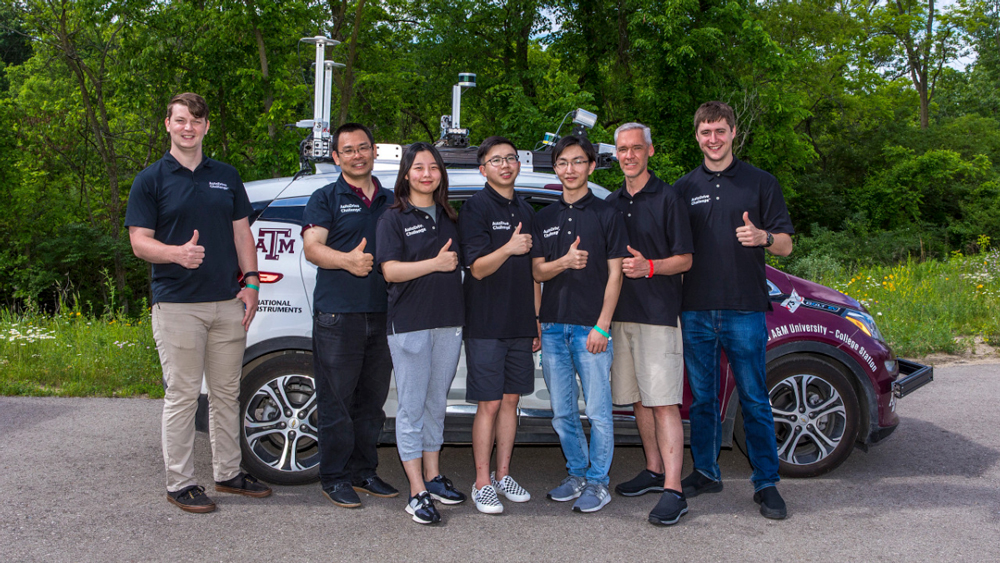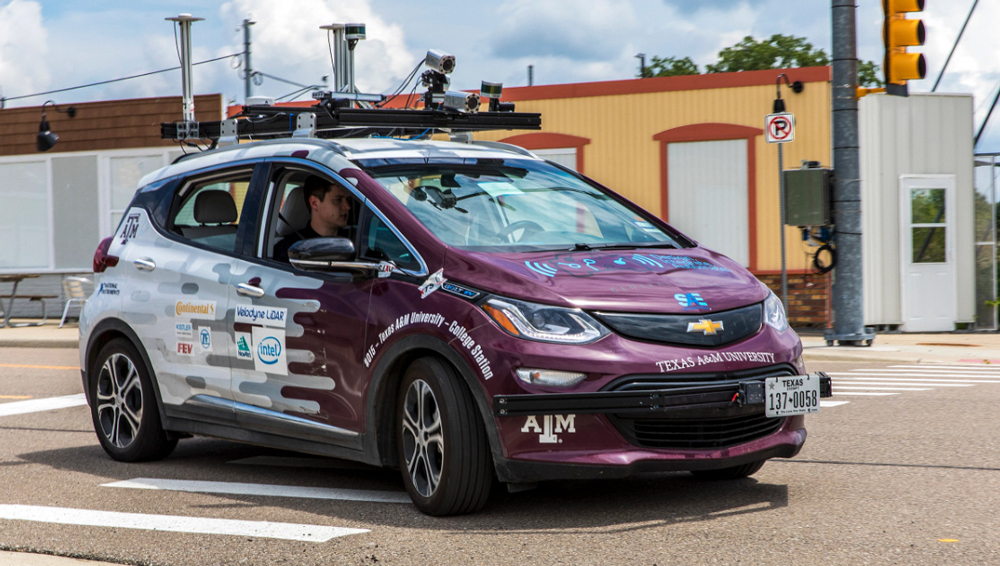
Texas A&M University’s team The 12th Unmanned took first place in the overall dynamic event during the fourth and final competition milestone of the 2021 AutoDrive Challenge held in Ann Arbor, Michigan, June 5-14.
The AutoDrive Challenge began in 2018 after General Motors (GM) and the Society of Automotive Engineers International announced the inaugural competition, where eight university teams from across the U.S. and Canada, including Texas A&M, would compete to develop and demonstrate a fully autonomous passenger vehicle that can navigate an urban driving course by the end of three years. But due to the COVID-19 pandemic, last year’s dynamic event was held virtually and postponed.
Computer science and engineering doctoral students Aaron Kingery (team captain), Shu-hao Yeh, Di Wang, Aaron Angert and Shuangyu Xie traveled to Michigan to participate in the year-four event. Yingtao Jiang and Suni Komadam, who are both master’s students in the department, served as virtual programming support from College Station.
Overall, more than 200 Texas A&M students from across the College of Engineering have contributed to the project, with more than 70 undergraduate and graduate students participating during its fourth and final year.

"It’s just very rewarding after a lot of hard work to get back on schedule and actually meet the demands of the competition,” said Kingery. “It was really satisfying to get there and have the vehicle actually perform. I’m so thankful for all of the people who put in a lot of time and effort into this project through the years,” Kingery said.
While Texas A&M placed first in the competition, the road to the final challenge was not an easy one. After going through a series of major setbacks during the second year, followed by a global pandemic that forced team members to work virtually, the team overcame great obstacles and remained determined to win.
“After year two, we realized that the vehicle in its current setup really needed a shift in order to perform in the way that the whole team wanted it to,” Kingery said. “So, taking the lessons we learned from those first two years of the competition, we adjusted course and redesigned the structure of the car’s software, which ultimately resulted in us doing the equivalent of four years of work in the last year.”
This year’s competition was held at the University of Michigan’s Mcity, which is a testing facility that simulates various driving situations that a vehicle might encounter while driving in a typical urban area. During the event, the teams had to face two dynamic challenges to test the car’s full capabilities and their technical competence.
The first event challenged the car’s ability to interact with and respond to stoplights, a railway crossing, street signs and pedestrians. For the second challenge, the car’s GPS sensors were turned off suddenly and the team had to demonstrate what they would do if the systems failed.
The 12th Unmanned has already been selected to compete in the second AutoDrive Challenge, which is scheduled to begin this fall.
The students were led and supported by GM advisor Matthew T. Boyle; project leader Dr. Dezhen Song from the Department of Computer Science and Engineering; Dr. Jian Tao from the Department of Electrical and Computer Engineering; and Dr. Debiyoti Banerjee, Dr. Swaroop Darbha and Dr. Swaminathan Gopalswamy from the J. Mike Walker ’66 Department of Mechanical Engineering.